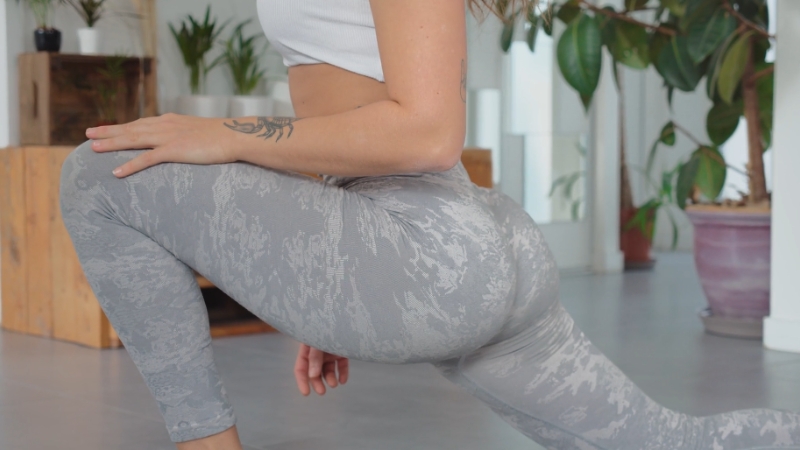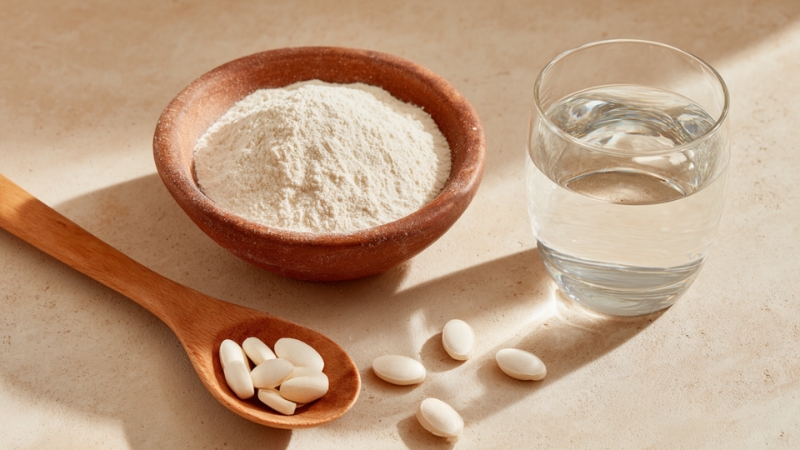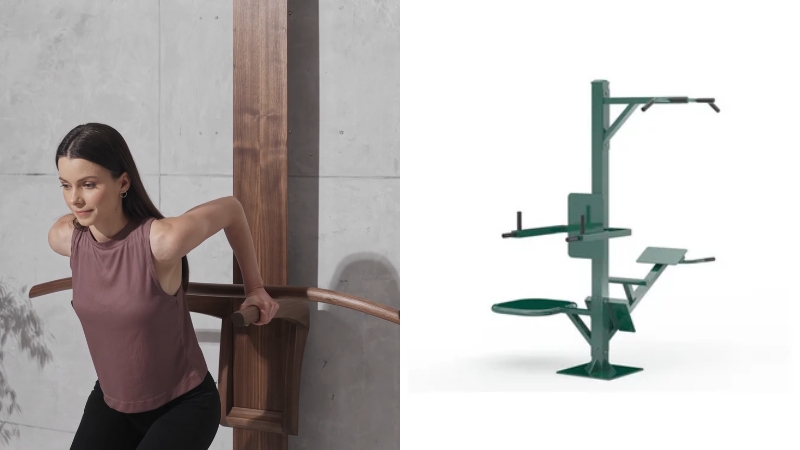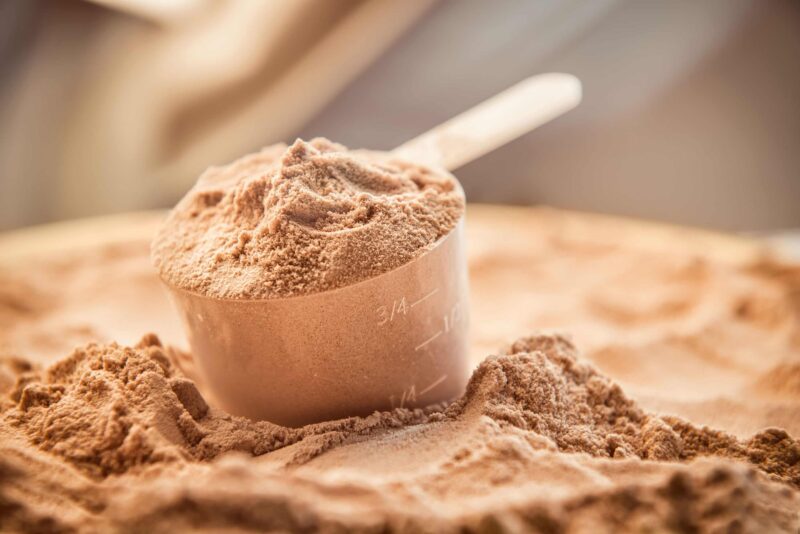
Share Post:
Protein powder is one of the most common supplements used for muscle growth, recovery, and general nutrition. Most people keep a tub or two in the kitchen cabinet without giving much thought to how long it has been sitting there.
Then one day, the expiration date comes into view, and the question becomes unavoidable-does protein powder actually expire, or does it just lose potency?
That stamped date on the label is easy to overlook, but it brings up a few important concerns. Can expired protein powder still be safe? Does it still help with muscle repair? Is there a clear point when it becomes useless or even harmful?
This article looks at what really happens to protein powder over time.
Key Insights
- Protein powder does not spoil like fresh food but can lose potency over time, especially after the expiration date.
- Most expired powders are still safe to use if stored in a cool, dry place with no signs of clumping, odor, or discoloration.
- Potency and flavor decline gradually due to amino acid breakdown, so older powders may offer less nutritional value.
What That Date on the Label Really Tells You
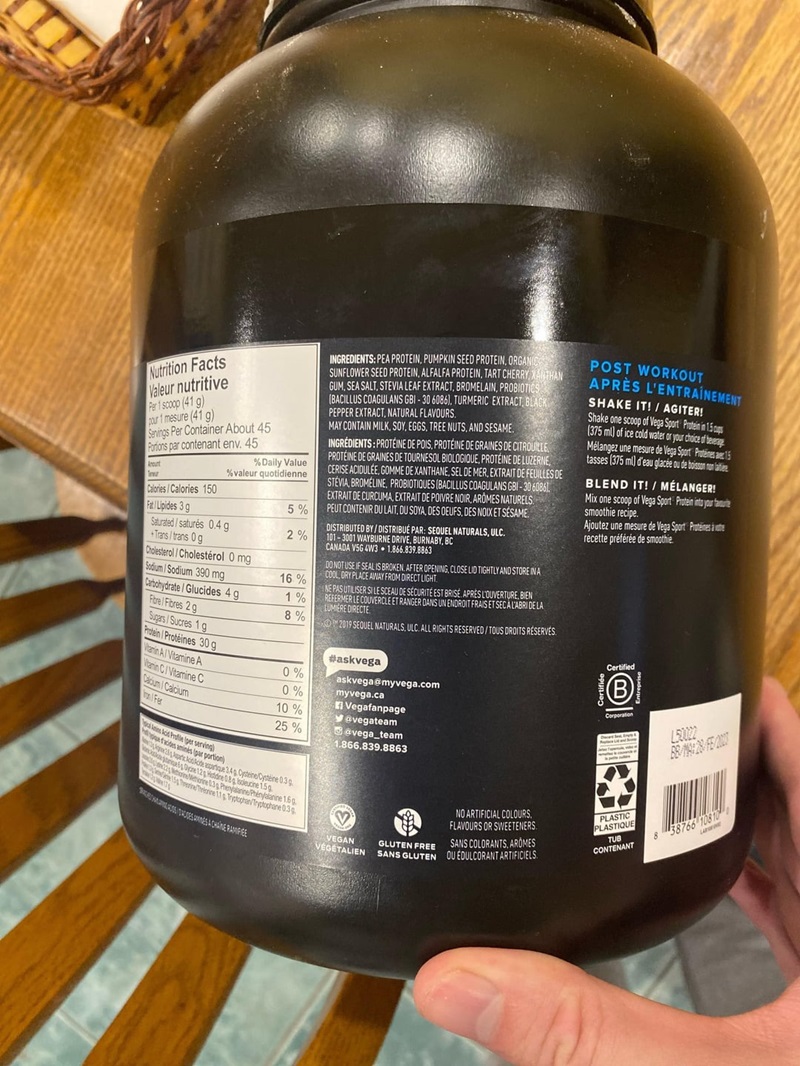
Look at any tub of protein powder and you will find one of the following:
- Expiration date
- Best by date
- Use by date
All three sound official, but none of them are legally enforced for supplements. That date is placed there by the manufacturer, often based on internal testing under ideal conditions. It gives a general sense of how long the product keeps its flavor, nutritional value, and texture at their best.
So What Does It Actually Mean?
It does not mean the product becomes unsafe the next day. It means the company has found that after that date, they no longer guarantee full potency, optimal taste, or mixability. In most cases, protein powder past that date is still safe if it has been stored properly.
How Long Does Protein Powder Actually Last
Shelf life depends more on how and where you keep it than what is printed on the lid. The ingredients matter too-but even then, the environment has the final say.
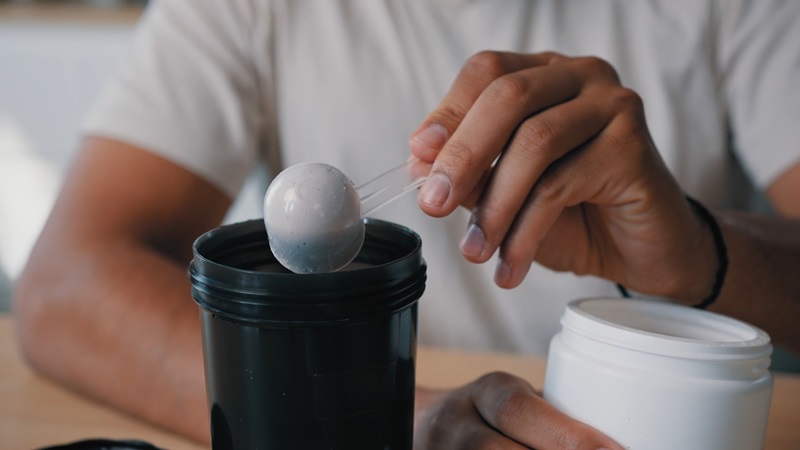
General Shelf Life Ranges
| Type | Expected Shelf Life | Notes |
|---|---|---|
| Whey protein (sealed) | 12 to 19 months | Can reach 2 years with additives |
| Casein protein | 12 to 18 months | Similar sensitivity as whey |
| Plant-based powders | 18 to 24 months | Typically more stable |
| Opened powder (any type) | 6 to 14 months | Degrades faster once opened |
When stored under ideal conditions (around 70°F, low humidity, no direct light), many protein powders stay good well beyond the listed date.
The Impact of Storage
High heat and humidity break down proteins faster. For example:
- At 95°F with humidity, some whey protein loses quality in 9 months
- At 70°F and dry, that same powder might still be fine after 19 months
Ingredients That Add Time
Some common additives extend shelf life by slowing oxidation and moisture damage:
- Maltodextrin: Absorbs moisture
- Lecithin: Helps powder mix evenly
- Salt: Natural preservative
Powders with these extras usually last longer. Those labeled “raw” or “all natural” may have a shorter window even if the printed date says otherwise.
Unopened tubs can last up to two years in the right setting. Once you open it, oxygen and moisture sneak in with every scoop. That cuts down the lifespan-even in the best storage spot.
When Expired Powder Is Still Safe
Most protein powders do not turn dangerous the moment they pass the printed date. What matters more than the number on the tub is how the powder has been stored and what condition it is in now.
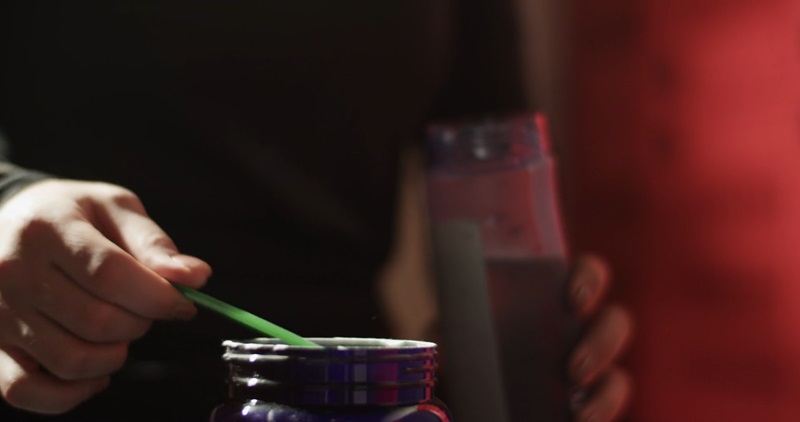
Low Moisture Means Low Risk
Protein powder is a dry product. That gives it a major advantage. Without moisture, harmful bacteria and mold cannot grow easily. As long as it stayed dry, sealed, and away from heat or direct light, it is likely still safe to consume weeks or even months after the expiration date.
What Does “Safe” Really Mean Here
Safe means you will not get food poisoning from it. No stomach cramps, no nausea, no vomiting. If there are no signs of spoilage and the powder still smells and tastes normal, it should not cause harm.
Safety Window After Expiration
- 1 to 3 months past date: generally fine if sealed and stored well
- 4 to 6 months past: condition matters more-check closely
- Over 6 months past: risk of poor quality increases, even if safe
When Potency Starts To Drop
Even if expired protein powder does not make you sick, it might not give you what you expect. Protein quality fades over time, and that matters if your goals rely on every scoop.
Why Potency Drops Over Time
One of the main reasons protein breaks down is a chemical process called Maillard browning. This happens when amino acids in the powder react with sugars. That reaction reduces the amount of lysine, an essential amino acid for muscle repair.
What It Means For You
The powder may look the same and mix the same, but you could be getting less usable protein per scoop. If you rely on it to meet daily protein goals or recover after training, that drop can make a real difference.
Not All Protein Is Affected The Same
- Whey and casein are more sensitive to heat and oxidation
- Plant-based powders often have longer stability
- Products with preservatives hold potency longer
Timeline Of Potency Loss
- 6 months past date: minor loss of lysine possible
- 12 months past: protein content may be noticeably lower
- After 18 months: most expired powders are past the point of reliable nutrition
How To Tell If It’s Gone Bad
Expiration dates help, but your senses do more. You can usually tell when a protein powder should not be used-no lab test required.
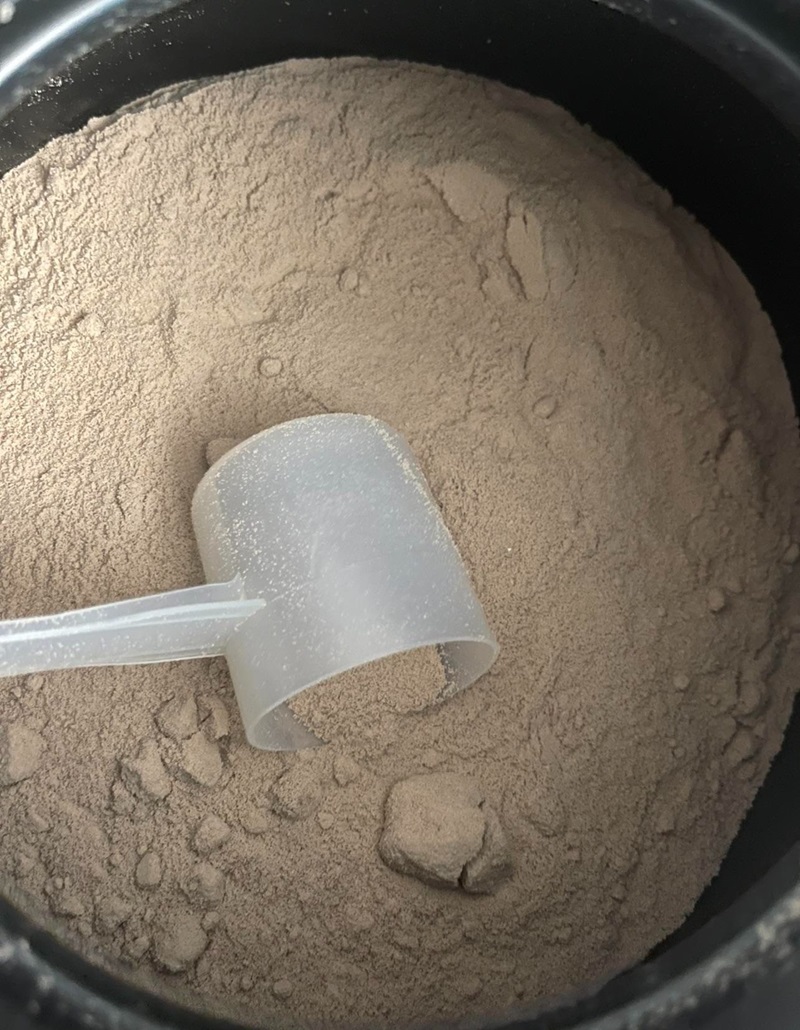
Smell Comes First
Open the lid and take a whiff. A sharp, sour, or chemical-like smell means something broke down inside the powder. That is a clear signal to stop using it.
Texture Changes Are a Warning
Protein powder should feel dry and smooth. If you see clumps or sticky patches, moisture has crept in. That raises the risk of mold and spoilage.
Taste Test Can Confirm It
Mix a half scoop in plain water. If the flavor is bitter, flat, or cardboard-like, that is another red flag. Some loss of taste happens with age, but a bad or rancid flavor means it has gone too far.
Color And Mixability
If the color looks off or it no longer mixes evenly, something inside has likely degraded. A fresh scoop should blend without much effort and should never leave oily or greasy spots.
How To Store It To Last Longer
Proper storage adds months to a tub’s lifespan. Every time you open the lid, air and moisture sneak in. A few simple habits go a long way.
Keep It Cool And Dry
Store your protein powder around 70°F in a dry spot. Avoid places like the bathroom, near the stove, or in direct sunlight. Never refrigerate or freeze it. That adds moisture, not freshness.
Use Airtight Containers
If the original tub is flimsy or loose-fitting, switch to an airtight container or jar. Keep it sealed tight every time. Letting it sit open shortens its lifespan more than most people realize.
Scoop Rule Matters
Always use a clean, dry scoop. A wet or sweaty scoop introduces moisture instantly, and that starts the breakdown process. Shake the scoop dry if needed before it goes back in the tub.
When To Throw It Out
Some tubs are not worth saving. Even if they are barely past the date, other signs can tell you it is time to stop guessing and get rid of it.
You Should Discard It If:
- It smells sour, stale, or chemical-like
- It has visible clumps or color changes
- It tastes bitter, burnt, or off
- It has been over a year past the expiration date
- It was stored in a hot or humid place
- You feel unsure after checking it-always trust that instinct
Final Notes
Protein powder lasts longer than most people think. The expiration date does not mark a hard limit-but it does give you a clue about when quality starts to fade.
If the powder looks, smells, and tastes right, and you stored it well, it is usually safe beyond that date. The risk is not about food poisoning in most cases. It is about getting less value, weaker nutrition, or bad flavor.
When freshness matters-especially for fitness, recovery, or nutrition goals-use a tub that is within its best range. Store it right. Check it before scooping. If there is any doubt, move on to a new one. You will get better results, better taste, and full confidence in what you are using.
Related Posts:
- Does Throwing Up Make You Lose Weight or Just Cause Harm?
- Delicious High-Protein Bread Recipe Without Protein Powder
- How is Protein Powder Made - The Making Process Explained
- Is Aromatherapy Just a Myth or Does Science Support It?
- Struggling to Lose Weight? Here’s What Might Be Going Wrong
- Dancing, Hiking, and Shopping? How to Lose Weight…



